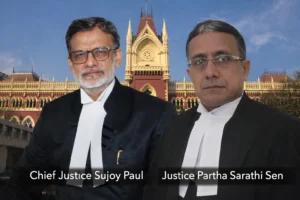In a landmark ruling that could reshape India’s judicial recruitment system, the Supreme Court on Thursday opened the door for serving judicial officers to compete for District Judge posts through the direct recruitment process. The Constitution Bench, headed by Chief Justice B.R. Gavai, held that Article 233(2) of the Constitution does not exclude in-service judges who earlier practiced law from applying under the Bar quota.
“The interpretation that excludes judicial officers from direct recruitment is unreasonable and contrary to the constitutional scheme,” the Bench observed, while settling a long-standing debate that had divided High Courts and legal scholars alike.
Read also:- Supreme Court Grants Bail to Juvenile in POCSO Case, Urges Early Sex Education in Schools
Background
The issue had arisen after conflicting interpretations of Article 233(2), which governs the appointment of District Judges. The article states that a person “not already in the service of the Union or of the State” may be appointed if he has been an advocate or pleader for at least seven years and is recommended by the High Court.
Earlier, in Dheeraj Mor v. High Court of Delhi (2020), the Supreme Court had held that only practicing advocates-not those already in judicial service-could apply for such direct recruitment. That decision triggered wide criticism from within the judiciary, especially from lower court judges who had previously been advocates for years before joining service.
The present batch of petitions, led by Rejanish K.V., challenged that interpretation. Petitioners argued that excluding judicial officers violated equality principles under Articles 14 and 16 and unfairly deprived experienced officers of a legitimate opportunity.
Court’s Observations
After hearing over a dozen senior counsels for weeks, the Constitution Bench took a textual, contextual, and purposive view of Article 233. The Chief Justice noted that the phrase “a person not already in the service” cannot be read in isolation.
“The first part of Article 233(2) creates two streams - one from judicial service and another from the Bar. Both are valid sources,” the Bench said.
The Court further emphasized that constitutional interpretation cannot be “pedantic.” It found that earlier rulings, particularly Dheeraj Mor and Satya Narain Singh, had incorrectly restricted eligibility. The Bench remarked, “Such exclusion would render the words ‘a person not already in service of the Union or State’ redundant, which the Constitution never intended.”
In a significant passage, the judgment observed:
“Merit must be the sole criterion. To deny judicial officers, who once practiced law, an equal chance to compete alongside advocates is to deny them fair treatment under the Constitution.”
The Court also relied on precedents such as Rameshwar Dayal v. State of Punjab and Chandra Mohan v. State of U.P., reaffirming that appointments to the higher judicial service draw from two legitimate sources-promotion and direct recruitment.
Read also:- Delhi High Court Drops Contempt Case Against Former Tax Official Over 'Willful Disobedience' Allegation in Income Tax Stay Order Dispute
Decision
The Supreme Court overruled the restrictive interpretation in Dheeraj Mor and held that judicial officers with prior practice of at least seven years as advocates are eligible to apply for direct recruitment to the post of District Judge.
The Bench clarified that such officers must meet the minimum experience requirement either through combined practice and service or as advocates before joining the judiciary.
Concluding the 120-page judgment, the Court directed High Courts and State Judicial Service Commissions to revise their recruitment rules in line with the ruling to ensure a uniform and constitutionally valid process across all States.
With this decision, hundreds of serving judges across India who began their careers as lawyers can now compete in open selection for higher judicial post-a reform many describe as long overdue.
Case Title: Rejanish K.V. v. K. Deepa & Others
Citation: 2025 INSC 1208
Date of Judgment: 12 September 2025















